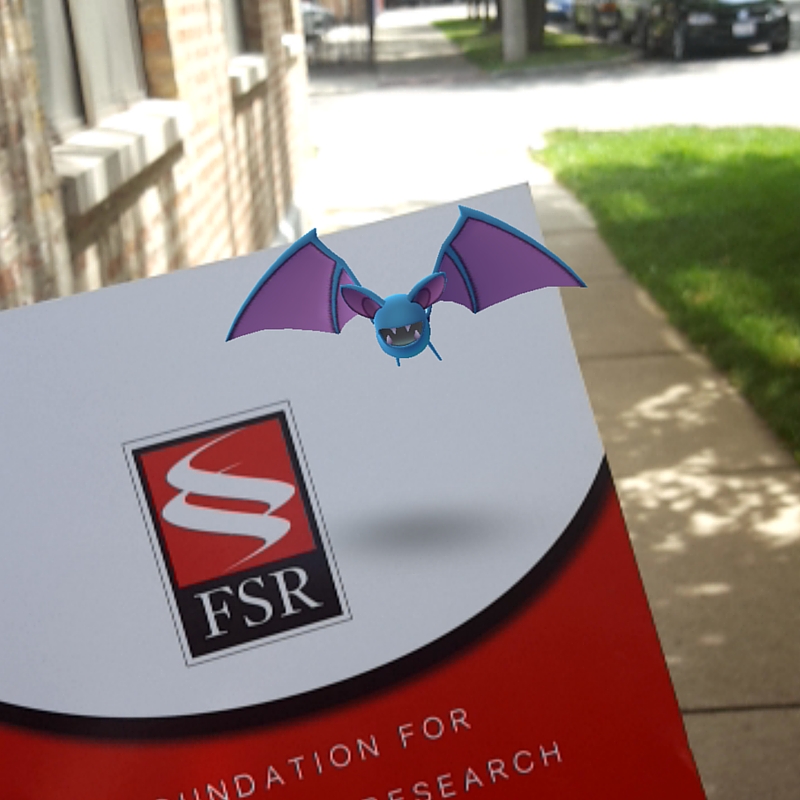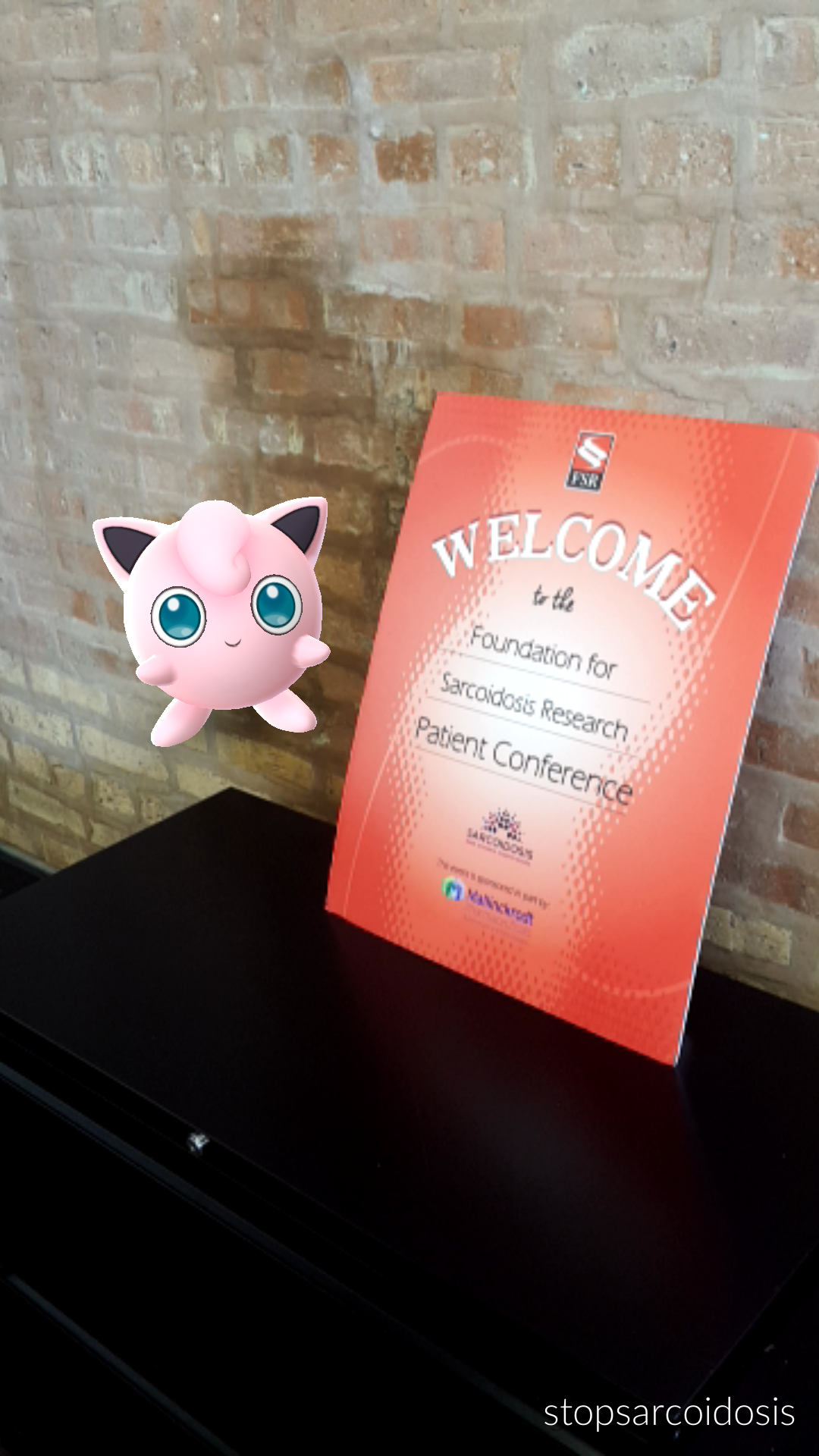Right now, it’s almost impossible to go a full day without hearing or reading about Pokemon Go. Nintendo has created a big buzz by bringing the 90’s game back in the form of a phone app. A lot of media attention focuses on negative stories: distracted players are causing car accidents, kids and adults alike are glued to their phones more than ever, and some people are even using the game’s geographic component to rob other players at remotely-located Poke stops, which are GPS-based places where players can restock on supplies for the game. However, it’s not all bad news. Kids are spending their summer days playing outside and businesses are seeing increased foot traffic thanks to Poke stops located in and around their venues. And people with chronic illnesses, including sarcoidosis, are finding this trendy new game is a fun way to stay active.
Pokemon Go motivates people to be physically active by offering incentives and rewards. Players have to walk around and explore their surrounding area if they want to discover Poke stops and “catch” new Pokemon, which appear based on geographic location. What users might not know is that the game taps into your phone’s pedometer and accelerometer too. Hatching an egg into a Pokemon requires the player to walk in order to keep their incubator warm. Different eggs require different distances, from 2 to 10 kilometers. For avid players, the prospect of hatching a new Pokemon is enough to send them sprinting in circles just to speed up the process. The app has even been called a “gamified pedometer.” This inventive technology could have great implications for helping individuals who have a difficult time exercising, including people with chronic illnesses. Already, one user from the online support community Inspire has written about her experience with the game, using it to cope with lung cancer and COPD. Pokemon Go gives her a fun reason to go outside and be active, taking her mind off of her illness.
Pokemon Go shows the future of technology-based fitness, which has been on the rise since the introduction of products like the FitBit, Jawbone Up and the Nike+ FuelBand. These products celebrate good old fashioned walking as a valid way to stay in shape, in contrast to popular intense workout programs. The interactive nature of technology like fitness appeals to people of all ages and fitness levels. These gadgets aren’t just pedometers; in addition to tracking your daily steps, they can also help monitor your heart rate, sleep patterns, daily calories burned, and nearly anything else you could want to track. Many of these products have an automatic daily goal of 10,000 steps, which can be adjusted based on your health and fitness goal. Some fitness bands and apps are similar to Pokemon Go, providing incentives and rewards. The FitBit app motivates users by allowing them to compete with Facebook friends and by awarding badges based on total distance walked; you get the Great Barrier Reef badge when you’ve walked an equivalent distance of 1600 miles. The Striiv pedometer, used by FSR patient advocate Karen “Duff” Lambros, donates a polio vaccine for every 60,000 steps you walk, providing a more humanitarian incentive for users to get some steps.
While Pokemon Go isn’t specifically catering to individuals with chronic illnesses, the app is a great starting point for sarcoidosis patients trying to live a more active lifestyle. Some research shows that regular exercise can be beneficial for sarcoidosis patients and help to minimize their fatigue. The University College London recommends individuals with sarcoidosis remain physically active in order to maintain their body’s overall functioning and efficiency.
Pokemon Go’s success with getting players physically active is an exciting example of the future of these pedometer-based gamified health apps! Walking doesn’t have to seem like a boring and mindless obligation. If you want to try using an app to get more active but you don’t feel like chasing virtual little critters all over town, here are some apps you can try out!
Pacer is a free app that tracks all of your daily activity, monitors your weight and BMI, allows you to set daily goals like drinking more water or eating healthier food. The app even lets you create virtual walking groups with you family and friends so you can keep each other motivated or have friendly competitions.
Stepz is a free app that allows users to track almost everything: steps, calories, total distance, active minutes, and flights of stairs climbed.
Breeze tracks your steps and progress throughout the week, and sends you motivational messages throughout the day. This is a great app for people who might need more constant reminders to get up and take a few steps.
Accupedo tracks steps, calories, and the amount of time you spend active every day, and allows you to share this information on Facebook. This might not be your style, but if it is, Accupedo is a great way to boost your confidence and your daily exercise habits.


